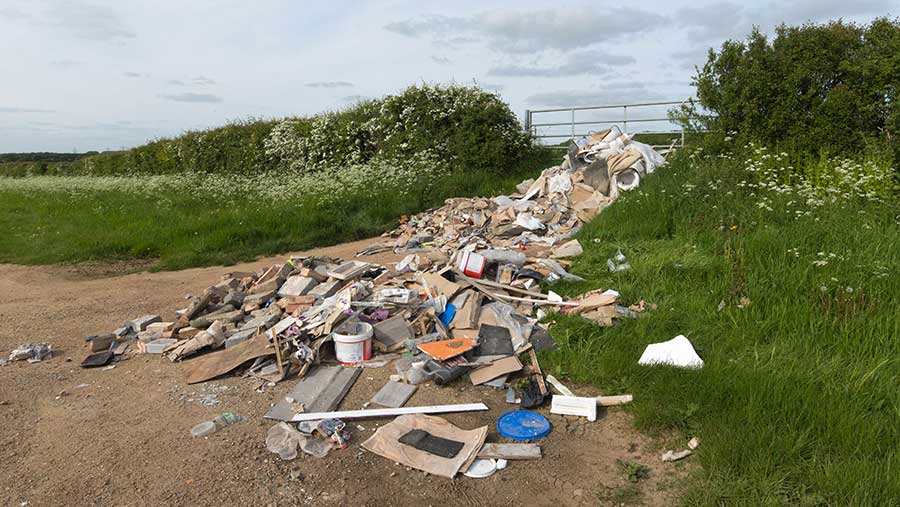New EA figures show extent of fly-tipping crisis on farms
 © Tim Scrivener
© Tim Scrivener Pressure is mounting on the government to get tougher on fly-tippers, with new data from the Environment Agency (EA) showing farmers as the group most affected by large-scale illegally dumped rubbish.
More than half of the 800-plus respondents to the EA’s national waste crime survey suggested that large-scale fly-tipping had increased over the past 12 months, with 15% of landowners making an insurance claim to clear dumped waste.
The NFU says the rising number of incidents is having a “devastating” impact on farming businesses and rural communities and is demanding urgent government action.
See also: What to do if you’re a victim of… fly-tipping
NFU deputy president Stuart Roberts said: “I hear every day about industrial-scale amounts of rubbish such as builder’s rubble, old furniture, kitchen appliances and used tyres being dumped in fields.”
The NFU’s recent rural crime survey revealed fly-tipping was the most prolific crime experienced by its members, with 48% of those surveyed saying they had experienced it in 2020.
“Not only is it affecting the hard work of our farmers in producing food and caring for the environment, but it’s taking a huge toll on farming families both emotionally and financially.
“Everyone hugely values the benefits the countryside brings, and none of us want it blighted by huge amounts of rubbish being strewn across fields and on the sides of rural roads,” Mr Roberts said.
The NFU would like to see the EA, police and local authorities work more closely with farmers, taking a consistent approach nationwide. “Offenders caught dumping waste illegally must also see the fines as a proper punishment and these must act as a deterrent,” he said.
Clampdown promised
The EA says it will use the results of the survey to help it improve compliance and clamp down harder on those who disregard the environment and the law.
“Waste criminals show complete disregard for communities and the environment, and they need to know we are ready to take action,” said Malcolm Lythgo, head of waste regulation at the EA.
“Last year the EA prosecuted nearly 100 individuals and companies for waste crime offences, with 28 custodial sentences, fines exceeding £900,000 and £1m of confiscation orders.
“We know how frustrating and costly waste crime is for landowners and communities, as well as those who manage their waste correctly but see others breaking the rules to gain an unfair competitive advantage.”
